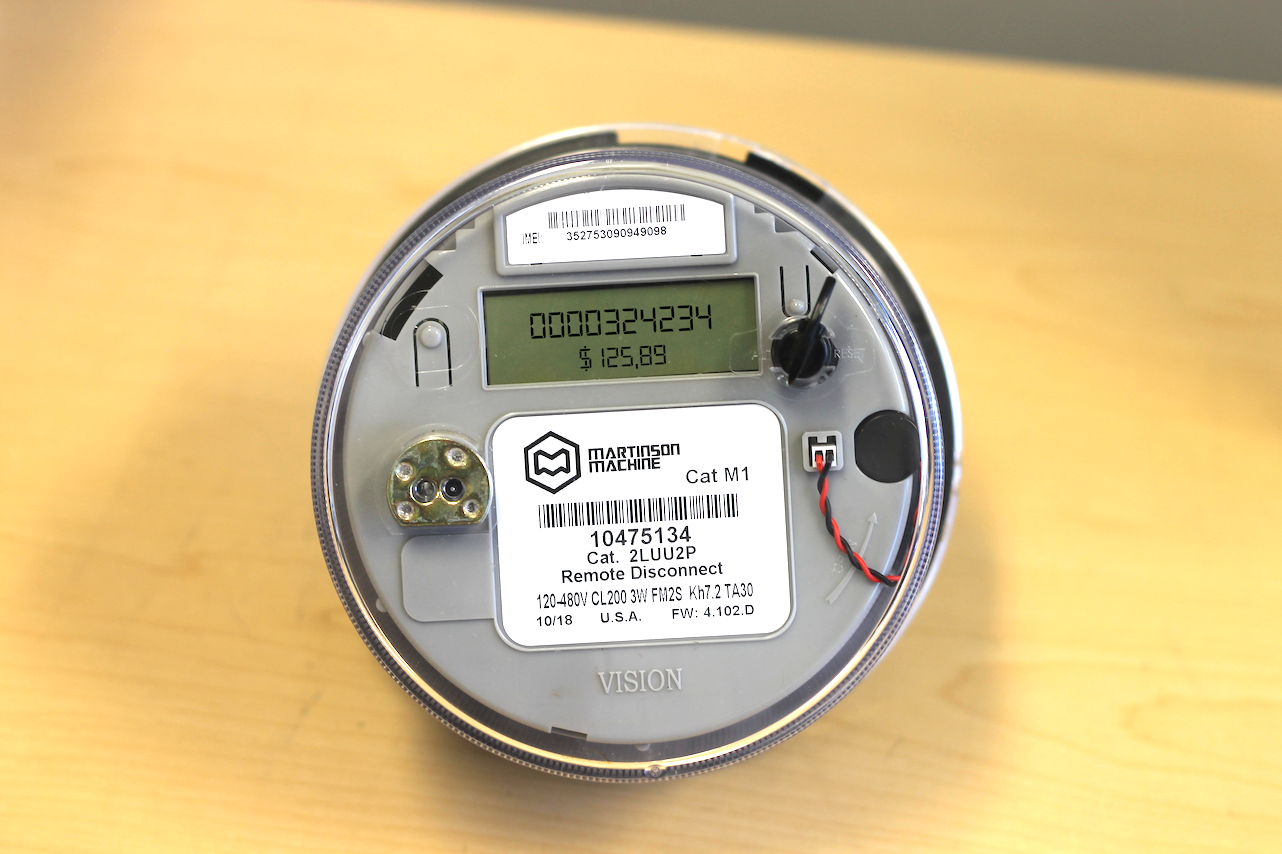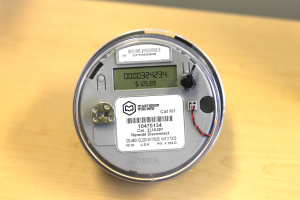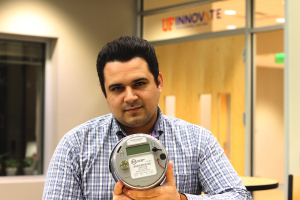To Make the Energy Bill Cheaper, Experts Bet on Energy Monitoring
"The direction that society and companies should take is how we can store energy and how we are going to make that energy available instantly and properly, without wasting and saving natural resources," says electrical engineer, Rodrigo Martinson.

Gainesville, FL, January 21, 2020 --(PR.com)-- "The direction that society and companies should take is how we can store energy and how we are going to make that energy available instantly and properly, without wasting and saving natural resources," says electrical engineer, Rodrigo Martinson.
The creator of an innovative meter in the market, Rodrigo Martinson believes that the billing rules - such as Time-of-use tariff - and a new consumer behavior of "standard family" will change the way we buy electricity. “By offering different prices according to the time that was consumed, the utility gives the consumer the right to control their own energy cost. This will bring an awareness of a new mentality of consumption, information that will help the consumer decides whether he wants to consume energy, in what period and also, the price he wants to pay,” declared Rodrigo. In the business world, according to Rodrigo, the companies also need to know how and how much they’re spending on energy, what is the cost of it, and then apply it on their products final prices.
The concern that Rodrigo would like to see addressed on the energy sector's agenda is about sources of electric energy. For him, the current reality, in which fossil source represents 60% of the energy supply, must be discussed, evaluated and changed. "Fossils are finite. We need to give preference to other sources, and in my opinion, the most efficient, instantaneous and appropriate way would be the idea to create several high density banks of super-powerful batteries (graphene battery banks that will be available on the market in the coming years)," he explains that during the day we can capture all forms of energy (solar and wind) and store unused energy inside these batteries. "When there is a need to use it, it will be there. All other sources involve high levels of waste, pollution and are more expensive," he informs.
Technically, the Engineer explains that all the energy we have has been transformed, not created, in other words, other forms of energy were used to generate electricity. "In the USA, it is transformed by the burning of fossil fuels, which gives the understanding that it can be 'wasted' because it will be generated again. But fossils are scarce, and in the USA we have experienced periods of price fluctuations that have helped to activate people's consciousness. Therefore, other ways of transforming energy can - and should - be driven, such as photovoltaics," he suggests.
This production will become more appropriate if conscious consumption is a priority in this project, because with energy reserved in abundance, the price will be lowered, guarantees Engineer Rodrigo. And it will be an advantage for everyone involved in this production chain: for those who produce, for those who transmit, distribute and especially those who consume. "The Time-Of-Use, for example, will discourage or change the energy consumption habits of a standard family. Since there is more stabilized consumption, the distributors will not need to hire companies or generators of extra energy, such as On-demand thermometric plants, which cost 10 times more," he says.
How to reduce consumption?
Asked about the main consumption reduction practices used by him, Rodrigo Martinson mentions four in particular: 1- Real-time identification of which devices consume more energy; 2- The exchange of lamps for less consumption and greater efficiency; 3- Adoption to new technologies' automation (to remotely control the lighting); 4- Periodic cleaning of air conditioning filters. "There are many others such as the use of an air conditioner when it is not necessary, but these four are very important and the consumer reaches up to 50% savings," he guarantees.
Kilowatt in schools
The topic of energy as a school subject, just as Financial Education is already being discussed as a tool for the well-being of the family, is also a contribution to social education. For Rodrigo, currently, people do not control and do not agree with the decisions on the electricity price. “They are clueless within the process; they just receive the bill and this may affect the budget of the house. If it is taught at school about mileage and weighing so knowing what a kilowatt-hour is, helps in the education of that citizen. As well as knowing what power and voltage is.” Rodrigo highlights that many users purchase equipment without understanding these characteristics, and end up burning the device or expending a lot of energy.
The Martinson Meter
The meter created by Rodrigo facilitates the energy management of consumers who adhere to the time-of-use tariff since it makes easy to program the operational tariffs and also helps users who produce their own energy through solar panels or other methods. "The consumer will have a more conscious consumption and, once this awareness is reached, he saves up to 50% of energy," guarantees the engineer.
Another direct benefit that can be exploited by utilities using the Martinson meter is the possibility of charging as a prepaid system, when you pay before consuming, without monthly fees. This would also lower administrative fees and increase companies' capital turnover.
The creator of an innovative meter in the market, Rodrigo Martinson believes that the billing rules - such as Time-of-use tariff - and a new consumer behavior of "standard family" will change the way we buy electricity. “By offering different prices according to the time that was consumed, the utility gives the consumer the right to control their own energy cost. This will bring an awareness of a new mentality of consumption, information that will help the consumer decides whether he wants to consume energy, in what period and also, the price he wants to pay,” declared Rodrigo. In the business world, according to Rodrigo, the companies also need to know how and how much they’re spending on energy, what is the cost of it, and then apply it on their products final prices.
The concern that Rodrigo would like to see addressed on the energy sector's agenda is about sources of electric energy. For him, the current reality, in which fossil source represents 60% of the energy supply, must be discussed, evaluated and changed. "Fossils are finite. We need to give preference to other sources, and in my opinion, the most efficient, instantaneous and appropriate way would be the idea to create several high density banks of super-powerful batteries (graphene battery banks that will be available on the market in the coming years)," he explains that during the day we can capture all forms of energy (solar and wind) and store unused energy inside these batteries. "When there is a need to use it, it will be there. All other sources involve high levels of waste, pollution and are more expensive," he informs.
Technically, the Engineer explains that all the energy we have has been transformed, not created, in other words, other forms of energy were used to generate electricity. "In the USA, it is transformed by the burning of fossil fuels, which gives the understanding that it can be 'wasted' because it will be generated again. But fossils are scarce, and in the USA we have experienced periods of price fluctuations that have helped to activate people's consciousness. Therefore, other ways of transforming energy can - and should - be driven, such as photovoltaics," he suggests.
This production will become more appropriate if conscious consumption is a priority in this project, because with energy reserved in abundance, the price will be lowered, guarantees Engineer Rodrigo. And it will be an advantage for everyone involved in this production chain: for those who produce, for those who transmit, distribute and especially those who consume. "The Time-Of-Use, for example, will discourage or change the energy consumption habits of a standard family. Since there is more stabilized consumption, the distributors will not need to hire companies or generators of extra energy, such as On-demand thermometric plants, which cost 10 times more," he says.
How to reduce consumption?
Asked about the main consumption reduction practices used by him, Rodrigo Martinson mentions four in particular: 1- Real-time identification of which devices consume more energy; 2- The exchange of lamps for less consumption and greater efficiency; 3- Adoption to new technologies' automation (to remotely control the lighting); 4- Periodic cleaning of air conditioning filters. "There are many others such as the use of an air conditioner when it is not necessary, but these four are very important and the consumer reaches up to 50% savings," he guarantees.
Kilowatt in schools
The topic of energy as a school subject, just as Financial Education is already being discussed as a tool for the well-being of the family, is also a contribution to social education. For Rodrigo, currently, people do not control and do not agree with the decisions on the electricity price. “They are clueless within the process; they just receive the bill and this may affect the budget of the house. If it is taught at school about mileage and weighing so knowing what a kilowatt-hour is, helps in the education of that citizen. As well as knowing what power and voltage is.” Rodrigo highlights that many users purchase equipment without understanding these characteristics, and end up burning the device or expending a lot of energy.
The Martinson Meter
The meter created by Rodrigo facilitates the energy management of consumers who adhere to the time-of-use tariff since it makes easy to program the operational tariffs and also helps users who produce their own energy through solar panels or other methods. "The consumer will have a more conscious consumption and, once this awareness is reached, he saves up to 50% of energy," guarantees the engineer.
Another direct benefit that can be exploited by utilities using the Martinson meter is the possibility of charging as a prepaid system, when you pay before consuming, without monthly fees. This would also lower administrative fees and increase companies' capital turnover.
Contact
Martinson Machine
Rodrigo Martinson
415-900-4659
martinsonmachine.com
Rodrigo Martinson
415-900-4659
martinsonmachine.com
Multimedia
Categories



